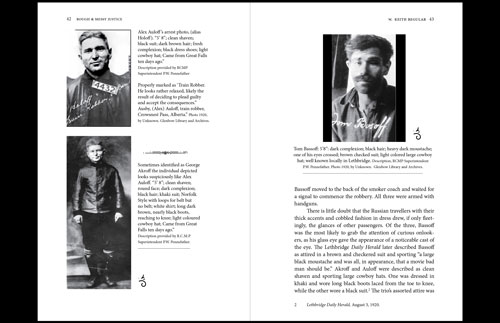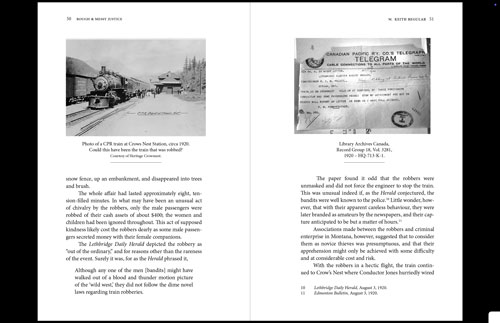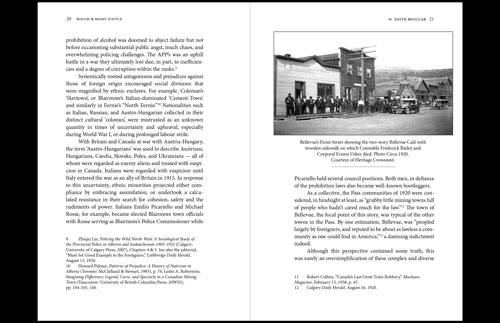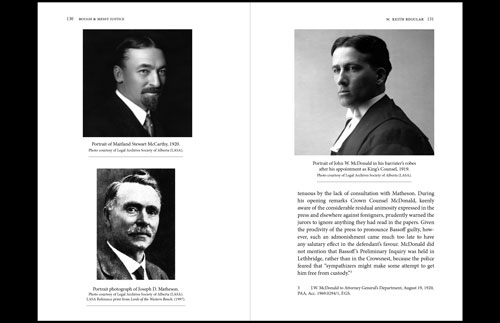ROUGH & MESSY JUSTICE
Sample from the Audiobook
Buy the Audiobook: On Audible, on Kobo
From the Preface, "Clumsy Application of the Law" by W. Keith Regular.
Narrated by Lorene Shyba | PDF of photos for audiobook readers
Images from the Book




---
An Excerpt from the Book
From the Preface
By W. Keith Regular
Rough & Messy Justice takes us back to the summer of 1920, recounting in vivid detail the remarkable tale of a brazen train robbery, a deadly shootout, and the tragic wrongful conviction that left an indelible mark on Western Canadian history. On August 2, 1920, three Russian bandits—Thomas Bassoff, George Akroff, and Ausby (aka Alex) Auloff—boarded a train in Lethbridge, Alberta, bound for the Crowsnest Pass.
Along the way, they brandished revolvers, robbing male passengers of money and jewellery while sparing women and children. When the train made an unscheduled stop at Sentinel, the thieves fled—one of them even stealing the conductor’s pocket watch.
Days later, on August 7, Bassoff and Akroff resurfaced in the town of Bellevue, where they were spotted by local authorities. A confrontation at the Bellevue Café erupted into a deadly shootout, leaving two officers and bandit Akroff dead, while Bassoff escaped. In the ensuing manhunt, another officer was tragically killed by friendly fire.
Until now, these events have been presented in the media as a straightforward tale of crime and punishment. This book re-examines the case, uncovering a far more complex story—one rife with police incompetence, cover-ups, judicial bias, and legal negligence. A closer inspection reveals a flawed justice system: a careless and biased judge, a negligent Crown prosecution, an unprepared defence, a suspect jury, and a sloppy trial that ignored crucial evidence and science—ultimately justifying the hanging of an innocent man.
This case stands as a tragic miscarriage of justice in early Alberta. The brief yet violent encounter at the Bellevue Café challenges the widely accepted myth of a non-violent Canadian West. For ten days in August 1920, Alberta’s Crowsnest Pass became Canada’s own version of the ‘Wild and Woolly West,’ with the small mining town of Bellevue at its epicentre.
In response to this unprecedented violence, the press seized the opportunity to reinforce the enduring myth that the Mounties always get their man. The media further perpetuated the widespread belief that wherever the law prevails, justice naturally follows. More troubling, however, was how the press used the incident to fuel anti-immigrant sentiment, reinforcing the dangerous misconception that European ‘foreigners’ were habitually lawless, rejected Canadian and British values, and posed a threat to Anglo supremacy.
My interest in the Bellevue shooting saga was stimulated by teacher staffroom conversations with colleague Allan Phillips who shared a similar fascination with historical tales. I initially assumed that given the very public and dramatic violence involved, the details of the story should be readily accessible. With a rudimentary investigation I discovered, however, that the record available was sketchy and left me wondering: was the violence really that clear cut? Why did this police and citizen encounter end so violently and tragically?
